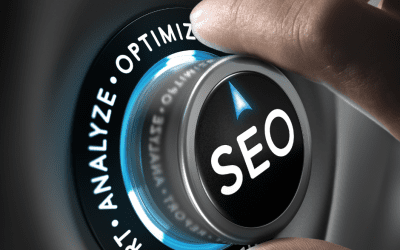Time is of the essence and attention spans are shorter than ever, the need for speed has become paramount. And this holds true not just for race cars and roller coasters, but for websites as well
Studies have shown that users expect websites to load in the blink of an eye, with research indicating that even a one-second delay in page load time can result in a staggering 7% decrease in conversions. But it’s not just user experience that is affected by slow-loading websites. Search engines, like Google, also consider website speed when determining search rankings. In fact, website speed has been a ranking factor for quite some time now, with Google announcing back in 2010 that it would be factored into their algorithm.
So, if you want your website to rank higher in search engine results pages (SERPs) and attract more organic traffic, optimizing your website speed is crucial. In this blog post, we will dive deep into the SEO power of website speed, unveiling its impact in a way that is easy to understand, even for those who aren’t tech-savvy. We will explore how website speed affects user experience and search engine rankings, and reveal the steps you can take to optimize your website for lightning-fast loading times. So, buckle up and get ready for an eye-opening journey into the world of website speed and its undeniable impact on SEO.
The Importance of Website Speed for User Experience
When it comes to user experience, website speed plays a crucial role. As mentioned earlier, users have high expectations when it comes to website loading times. They want information at their fingertips, and they want it fast. If a website takes too long to load, users are likely to become frustrated and abandon the site altogether.
Think about your own experiences as an internet user. How many times have you clicked on a link only to be met with a slow-loading website? It’s frustrating, right? Well, you’re not alone. Studies have shown that 40% of users will abandon a website if it takes more than three seconds to load.
Not only does slow loading time lead to higher bounce rates, but it also harms user engagement. Users are less likely to explore a website or make a purchase if they have to wait for pages to load. On the other hand, fast-loading websites provide users with a seamless browsing experience, encouraging them to stay longer and engage with the content.
To ensure optimal user experience, website owners and developers need to prioritize speed optimization. This can be achieved through various techniques such as optimizing images and videos, minimizing HTTP requests, and leveraging browser caching.
The Connection Between Website Speed and Conversions
Website speed not only affects user experience but also has a direct impact on conversions. As mentioned earlier, even a one-second delay in page load time can result in a 7% decrease in conversions. This means that if your website takes too long to load, you could be losing potential customers.
Why does this happen? Well, think about it from the user’s perspective. If they are looking for information or trying to make a purchase online, they want instant gratification. They don’t want to wait around for a slow-loading website to load. If your website fails to meet their expectations, they are likely to abandon it and look for alternatives.
On the other hand, a fast-loading website can significantly improve your conversion rates. When users have a positive experience on your site, they are more likely to trust your brand and take the desired action, whether it’s making a purchase, filling out a form, or subscribing to your newsletter.
So, if you want to maximize conversions and drive revenue for your business, optimizing your website speed should be a top priority.
How Search Engines Use Website Speed as a Ranking Factor
Search engines like Google consider website speed as one of the many factors when determining search rankings. This means that if your website is slow to load, it may be penalized in terms of search visibility.
Google has been using website speed as a ranking factor since 2010 when they announced that it would be incorporated into their algorithm. The reason behind this is simple – Google wants to provide its users with the best possible search experience. And part of that experience involves delivering fast-loading websites that meet user expectations.
When you think about it from Google’s perspective, it makes sense. If a user clicks on a search result and is met with a slow-loading website, they are likely to hit the back button and try another result. This indicates to Google that the initial result was not relevant or useful for the user’s query.
To ensure that your website ranks well in search engine results pages (SERPs), it is crucial to optimize its speed. This can be done by implementing techniques such as minifying CSS and JavaScript files, reducing server response time, and using content delivery networks (CDNs) to distribute content across multiple servers.
Understanding Google’s Algorithm and Website Speed
Google’s algorithm is a complex system that determines the order in which websites appear in search results. While website speed is just one of the many factors considered by the algorithm, it is still an important one.
Google uses various tools and metrics to measure website speed, including the PageSpeed Insights tool and the Core Web Vitals. These tools analyze factors such as page load time, time to first byte, and visual stability to determine how fast a website is loading for users.
By understanding how Google’s algorithm works and how it evaluates website speed, you can make informed decisions when optimizing your site. This includes implementing best practices for speed optimization, monitoring your site’s performance regularly, and making necessary adjustments to improve loading times.
Website speed plays a crucial role in both user experience and search engine optimization (SEO). It directly impacts user engagement, conversions, and search rankings. By prioritizing speed optimization techniques and understanding how Google’s algorithm evaluates website speed, you can ensure that your site provides a fast and seamless browsing experience for users while also improving its visibility in search results.
The AI Web Agency is dedicated to helping our clients grow their business. Growth is the DNA and foundation of our focus in everything we provide to our clients. The AI Web Agency offers marketing services that make our client’s phones ring, their websites fill with visitors, and keeps their existing clients engaged. We deliver this growth both online and offline, to local businesses and national brands. We leverage the power of AI to provide precision personalized content delivered via Email, Web, and Social Media to help businesses grow.









